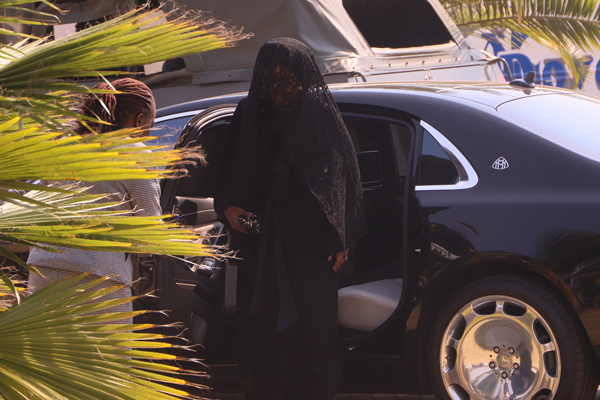
BY JASON L RILEY
“Peace has come to Zimbabwe/Third World’s right on the one/Now’s the time for celebration/ ‘Cause we’ve only just begun.” So sings Stevie Wonder in Master Blaster, his 1980 hit single. And he wasn’t the only one who turned out to be overly optimistic about the southern African nation’s future under its then-new leader, Robert Mugabe.
Margaret Thatcher said that Mugabe, who delivered independence for the former British colony after decades of white-minority rule, was someone she could work with. And Ian Smith, the former Rhodesian leader whom Mugabe replaced, wrote in his memoirs that his first encounter with the new prime minister was encouraging. “He behaved like a balanced, civilised Westerner, the antithesis of the communist gangster I had expected,” wrote Smith. “If this was a true picture, then there could be hope instead of despair.”
It didn’t take long for Mugabe to drop the statesman act. His expressed goal from the beginning was to transform his political party, the Zimbabwe African National Union (Zanu), into a “truly Marxist-Leninist party” and make Zimbabwe a one-party nation.
Initially, he agreed to a coalition government that shared power with his rival, Joshua Nkomo. But Mugabe reneged on the arrangement. He secretly formed a military brigade loyal only to him and brought in North Korean instructors to train soldiers.
Nkomo was fired from the government and his party’s assets were seized. His followers were branded “dissidents,” and several were jailed. Mugabe was just getting started.
“In Mugabe’s drive for a one-party state, at least 10 000 civilians were murdered, many thousands more were beaten and tortured, and an entire people were victimised,” writes British historian Martin Meredith. The government bought out the country’s five biggest newspapers, and journalists who were critical of the regime were shown the door.
Radio and television likewise became outlets for government propaganda. Judges who crossed Mugabe were threatened or forced to resign and then replaced with party loyalists.
- Chamisa under fire over US$120K donation
- Mavhunga puts DeMbare into Chibuku quarterfinals
- Pension funds bet on Cabora Bassa oilfields
- Councils defy govt fire tender directive
Keep Reading
Within two years of taking office, the corruption scandals had already begun.
Mugabe and fellow kleptocrats were setting up foreign bank accounts and siphoning millions from the state treasury. A no-bid government contract to renovate the capital city’s airport was awarded to Mugabe’s nephew. Bureaucrats and cronies plundered the national oil, electric and telecom companies until there was nothing left.
In 1987 Mugabe gave himself the power to dissolve parliament, declare martial law and run for office indefinitely. The freedom fighter had become just another African tyrant.
Areas of the country that supported Mugabe’s political rivals were denied food during droughts. Before elections, militias were dispatched to intimidate voters. The homes and businesses of people who backed the opposition were raided. Criticising the president was considered a criminal offence, and police banned political rallies that the government didn’t want to take place. Mugabe was willing to do whatever it took to maintain power, no matter the damage, and perhaps nothing was more damaging to Zimbabwe than his relentless attacks on white farmers, which only served to drive away the country’s most productive citizens.
“We are going to take the land and we are not going to pay a cent to any soul,” he said. But Zimbabwe did pay. White farmers grew 90% of the country’s marketed corn, 90% of its cotton and most of its other export crops. In all, they produced some 75% of the country’s agricultural output. They were the engine of the economy, and when they began to leave it cost Zimbabwe dearly.
Maize production fell by nearly 70% between 1981 and 1983. By the end of the decade, inflation was running almost 20% a year and the unemployment rate in urban areas was nearly 50%.
In the 1990s inflation reached 60%, more than half of adults were jobless, and the wages of those who were working fell by 22%. The nation was 10% poorer at the end of the decade than it was at the start, and more than 70% of the population lived in extreme poverty and lacked basic needs.
By the mid-2000s, Zimbabwe, a country that had the most broad-based economy in Africa when it became independent, would have the world’s highest inflation rate, its lowest life-expectancy and the fastest-contracting economy outside a war zone.
Mugabe was unrepentant. In a 2003 speech, he said he would act like a “black Hitler” to quell his political opponents, if that’s what it took. “If that is Hitler, then let me be a Hitler ten-fold. Ten times. That is what we stand for.”
After 37 years in office, Mugabe resigned from the presidency under pressure in 2017. He was allowed to keep his mansion and ill-gotten millions. He died last week, surrounded by family and friends, in a Singapore hospital at the age of 95. It’s a happy ending he didn’t deserve.
This article was first published in the Wall Street Journal











